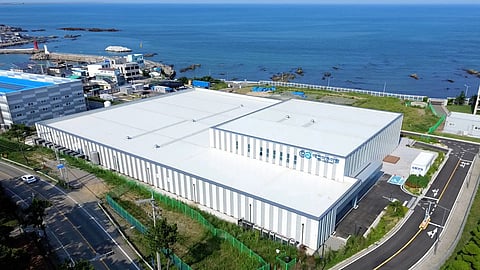

The new facility is located at the Fisheries Science Institute of Pukyong National University in Gijang-gun.
AKVA Group
AKVA group has provided its recirculating aquaculture system (RAS) technology to South Korea's first land-based salmon farm, developed by GS Engineering & Construction and operated by its subsidiary Eco Aquafarm.
In January 2025, Pukyong National University President Bae Sang-hoon, Busan Deputy Mayor Kim Kwang-hwe, Minister of Oceans and Fisheries Kang Do-hyung, and GS Construction CEO Heo Yoon-hong presided over the inauguration of the Busan Smart Aquaculture Cluster.
"Our collaboration with Eco Aquafarm has included system delivery, training, and advisory services, and we look forward to continuing the cooperation as the facility moves into full production," detailed Sales Director for Land Based at AKVA group, Jacob Bregnballe.
Additionally, Business Development Manager at Eco Aquafarm, Sang-Jun Dong, noted: "While AKVA group takes care of the technology, we focus on keeping the fish in good condition. As this is our first land-based salmon project, everything is new and challenging. With the right support and training from AKVA group's team, we are building the expertise needed for advanced aquaculture in Korea."
The new facility is located at the Fisheries Science Institute of Pukyong National University in Gijang-gun. Spread across two floors, it features smart monitoring and control systems, along with digital tools that oversee water quality, fish health, and system performance.
It has a capacity of 500 metric tons of Atlantic salmon per year, and the first salmon eggs were stocked in the autumn of 2024. Harvest is expected in the fourth quarter of 2026, after two years of cultivation. During the second phase, Eco Aquafarm will increase production tenfold and invite global investors to participate.
Regarding these plans, Dong advanced: "We are entering the global marine plant business by expanding a large RAS fish farm with an annual capacity of 5,000 tons. As one of Korea's top three construction companies, we leverage our experience in large-scale projects to ensure long-term success."
